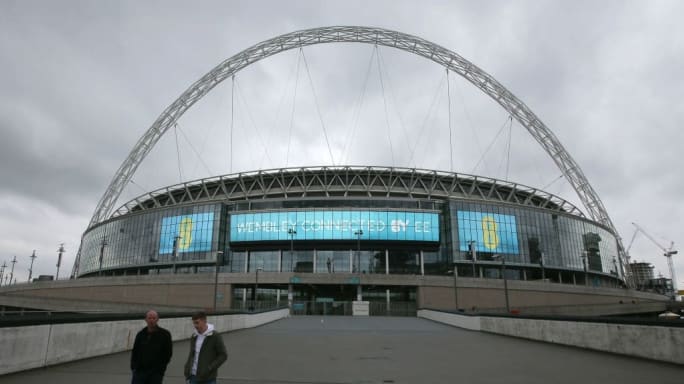
The 2019/20 EFL Championship season drew to a close on Wednesday night when all 24 of the biggest clubs in Britain completed the 46-game campaign, which lasted a full 355 days from its 2 August kickoff.
By the time the playoff final is contested, the campaign – which was halted in late March for three months as a result of the coronavirus pandemic – will have lasted a year and two days. One can only hope there is never another season like it.
Leeds won the Championship title to secure a place back in the Premier League for the first time in 16 long years. West Brom followed them up in the second automatic promotion spot, marking a return to the top flight only two years after they were last relegated.
At the other end of the table, Hull sank into League One for the first time since climbing the lower league ladder so rapidly 15 years ago. Wigan have resumed their run as a yo-yo club between the second and third tier, while Charlton are also relegated after being leapfrogged on the final day.
But with the league campaign over there is still the important matter of the Championship playoffs to settle, determining which club will get that coveted Premier League promotion.
Which Clubs Are in the Championship Playoffs?
Brentford finished third in the final Championship table, missing the chance to pip West Brom to the second automatic promotion place. The Baggies left the door wide open by drawing at home to mid-table QPR in their last game, but Brentford were beaten at home by Barnsley (who secured their safety from relegation in the process) and finished two points shy of second place.
Fourth placed Fulham also had the chance to go up automatically on the final day of the season, although the Cottagers needed to win (which they didn’t), hope that Brentford dropped points (which they did) and that West Brom lost (which they didn’t).
The other two places were both still to play for.
Cardiff had their fate in their own hands and secured a fifth-placed finish by comfortably beating an already relegated Hull in the Welsh capital.
Sixth place in the final standings, and the all-important fourth and final playoff spot, went to Swansea, who managed to leapfrog Nottingham Forest despite needing a five goal swing in goal difference in order to do it.
Forest were in a strong position prior to kickoff and needed only a point from their home game against Stoke. Even a defeat would have been enough as long as Swansea didn’t win and the goal difference didn’t swing out of their favour. But both of those things happened.
Forest lost 4-1 to Stoke, while Swansea repeated the same 4-1 scoreline at Reading, moving them level on points and giving them the superior goal difference.
When & Where Are the Semi-Finals & Final?
The first semi-final pits Swansea against Brentford in accordance with final league standings, with the first leg at the Liberty Stadium in south Wales on Sunday 26 July (6.30pm). The return leg will then be played at Brentford’s Griffin Park three days later on Wednesday 29 July (7.45pm).
The other semi-final between Cardiff and Fulham kicks off with the first leg at Cardiff City Stadium on Monday 27 July (7.45pm) and concludes at Craven Cottage on Thursday 30 July (7.45pm).
The winners of each semi-final will progress to the final at a closed Wembley on Tuesday 4 August, kicking off under the famous arch at 7.45pm.
How Can I Watch?
Both semi-finals and the final will be broadcast exclusively by Sky Sports, which is available via traditional subscription packages from television providers or can be live streamed on a non-contract basis with a NOW TV Sky Sports pass.
How Much Do the Playoff Winners Get?
Last season’s Championship playoff final was thought to be worth a minimum of £170m to winners Aston Villa. That money doesn’t come as a one-off lottery-type bonus, but is what being in the Premier League represents in terms of additional revenue (£95m) in the first year and potential parachute payments over two years should the club be relegated after one season (£75m).
Staying up brings in more money, an estimated £200m in revenue for two seasons in the Premier League, plus a third year’s worth of parachute payments in the event of relegation.
The anticipated revenue expected to come Aston Villa’s way this season will have been lessened by the unforeseen coronavirus crisis. In the same vein, whichever club wins this season’s playoff final may have their earning potential next season slightly limited by the lingering effects of the crisis.
For more from Jamie Spencer, follow him on Twitter and Facebook!
Source : 90min





